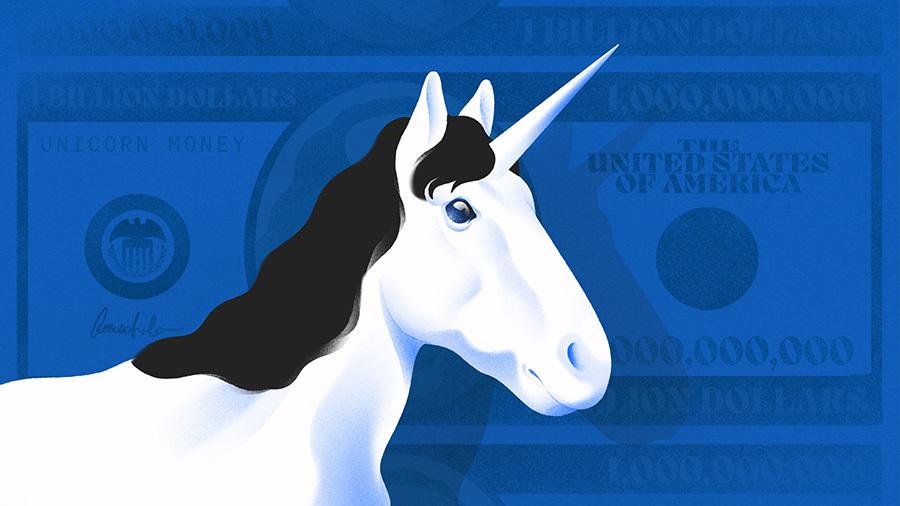Biotech Share Of US Funding Hits Lowest Point In Crunchbase History
The share of U.S. startup investment going to biotech companies has hit the lowest level in more than 20 years, as an ever-growing proportion of funding goes to AI upstarts in other sectors.
So far in 2025, investors have put $16.6 billion into seed through growth-stage rounds for biotech companies, per Crunchbase data. That pencils out to just over 8% of U.S. startup investment.
It’s by far the lowest percentage in years, as charted below. In dollar terms, 2025 is also on track to show sharply lower biotech funding, even as overall venture investment to all sectors has been on the rise.
Biotech previously pulled in a double-digit share
It’s quite a shift. In past years, biotech has reliably pulled in a double-digit percentage of venture funding.
While the proportion fluctuates from year to year, in most cases more than 15% of annual funding has gone to companies in Crunchbase biotech categories, based on a survey from 2007, our founding year, to the present.
In some cases it’s even higher. In 2020, for instance, around 20% of reported investment went to companies in biotech categories.
IPOs also down
As we recently reported, biotech IPOs are also not having a moment.
So far this year, just 18 funded U.S. startups in the biotech, drug discovery and medical device spaces have made their debuts on Nasdaq or the New York Stock Exchange, per Crunchbase data. That puts 2025 on track to deliver the lowest number of biotech IPOs in years.
As we noted previously, the sluggish IPO pace is one of several indicators that investors are growing more risk-averse toward biotech and medtech. Many of the contributing factors are Trump administration-induced. These include cuts to public research funding, leadership upheaval at the Food and Drug Administration and public health agencies, and questions around future drug pricing policy.
Slower early-stage funding and who is raising big rounds
Slower early-stage funding is another concerning stat. It indicates that even if market enthusiasm for biotech rebounds, there will be a limited pipeline of companies ready to scale.
So far this year, U.S. biotech startups have raised just $8.2 billion in seed and early-stage funding — on track for the lowest funding total in years.
Even so, we have seen a few jumbo-sized early-stage financings this year. The largest include:
- Kardigan, a developer of cardiovascular drugs, launched in January with $300 million in initial funding;
- Lila Sciences, a startup focused on developing scientific superintelligence technology, secured $235 million in Series A funding this month; and
- Dispatch Bio, a developer of immunotherapies for solid tumors, raised $216 million in a July Series A.
At the later stages, meanwhile, the largest rounds went to Elon Musk’s Neuralink, and MapLight Therapeutics, which closed a Series D in July and filed to go public this month.
The AI effect
It should be reiterated that the shrinking share of funding going to biotech isn’t just the result of weaker investor enthusiasm for the space. Rather, it’s also a reflection of voracious investor appetite for AI companies, most of which aren’t categorized as biotech startups.
For the first half of the year, for instance, startup investors put nearly $90 billion into North American AI deals, with OpenAI’s $40 billion SoftBank-led financing accounting for a big chunk of that. In Q3, the AI megarounds have continued to pile up, with Anthropic leading the way.
And while biotech companies have historically secured some of the largest venture rounds in a given quarter, thus far they are nowhere close to competing with the GenAI giants when it comes to fundraising.
Related Crunchbase queries:
Related reading:
- Biotech Isn’t Partaking In The IPO Rebound
- As Funding To AI Startups Increases And Concentrates, Which Investors Have Led?
Illustration: Dom Guzman

Read More

Here Are Some Of The Newer Investors Entering The AI And Megaround Race
Biotech Share Of US Funding Hits Lowest Point In Crunchbase History
The share of U.S. startup investment going to biotech companies has hit the lowest level in more than 20 years, as an ever-growing proportion of funding goes to AI upstarts in other sectors.
So far in 2025, investors have put $16.6 billion into seed through growth-stage rounds for biotech companies, per Crunchbase data. That pencils out to just over 8% of U.S. startup investment.
It’s by far the lowest percentage in years, as charted below. In dollar terms, 2025 is also on track to show sharply lower biotech funding, even as overall venture investment to all sectors has been on the rise.
Biotech previously pulled in a double-digit share
It’s quite a shift. In past years, biotech has reliably pulled in a double-digit percentage of venture funding.
While the proportion fluctuates from year to year, in most cases more than 15% of annual funding has gone to companies in Crunchbase biotech categories, based on a survey from 2007, our founding year, to the present.
In some cases it’s even higher. In 2020, for instance, around 20% of reported investment went to companies in biotech categories.
IPOs also down
As we recently reported, biotech IPOs are also not having a moment.
So far this year, just 18 funded U.S. startups in the biotech, drug discovery and medical device spaces have made their debuts on Nasdaq or the New York Stock Exchange, per Crunchbase data. That puts 2025 on track to deliver the lowest number of biotech IPOs in years.
As we noted previously, the sluggish IPO pace is one of several indicators that investors are growing more risk-averse toward biotech and medtech. Many of the contributing factors are Trump administration-induced. These include cuts to public research funding, leadership upheaval at the Food and Drug Administration and public health agencies, and questions around future drug pricing policy.
Slower early-stage funding and who is raising big rounds
Slower early-stage funding is another concerning stat. It indicates that even if market enthusiasm for biotech rebounds, there will be a limited pipeline of companies ready to scale.
So far this year, U.S. biotech startups have raised just $8.2 billion in seed and early-stage funding — on track for the lowest funding total in years.
Even so, we have seen a few jumbo-sized early-stage financings this year. The largest include:
- Kardigan, a developer of cardiovascular drugs, launched in January with $300 million in initial funding;
- Lila Sciences, a startup focused on developing scientific superintelligence technology, secured $235 million in Series A funding this month; and
- Dispatch Bio, a developer of immunotherapies for solid tumors, raised $216 million in a July Series A.
At the later stages, meanwhile, the largest rounds went to Elon Musk’s Neuralink, and MapLight Therapeutics, which closed a Series D in July and filed to go public this month.
The AI effect
It should be reiterated that the shrinking share of funding going to biotech isn’t just the result of weaker investor enthusiasm for the space. Rather, it’s also a reflection of voracious investor appetite for AI companies, most of which aren’t categorized as biotech startups.
For the first half of the year, for instance, startup investors put nearly $90 billion into North American AI deals, with OpenAI’s $40 billion SoftBank-led financing accounting for a big chunk of that. In Q3, the AI megarounds have continued to pile up, with Anthropic leading the way.
And while biotech companies have historically secured some of the largest venture rounds in a given quarter, thus far they are nowhere close to competing with the GenAI giants when it comes to fundraising.
Related Crunchbase queries:
Related reading:
- Biotech Isn’t Partaking In The IPO Rebound
- As Funding To AI Startups Increases And Concentrates, Which Investors Have Led?
Illustration: Dom Guzman

Read More

